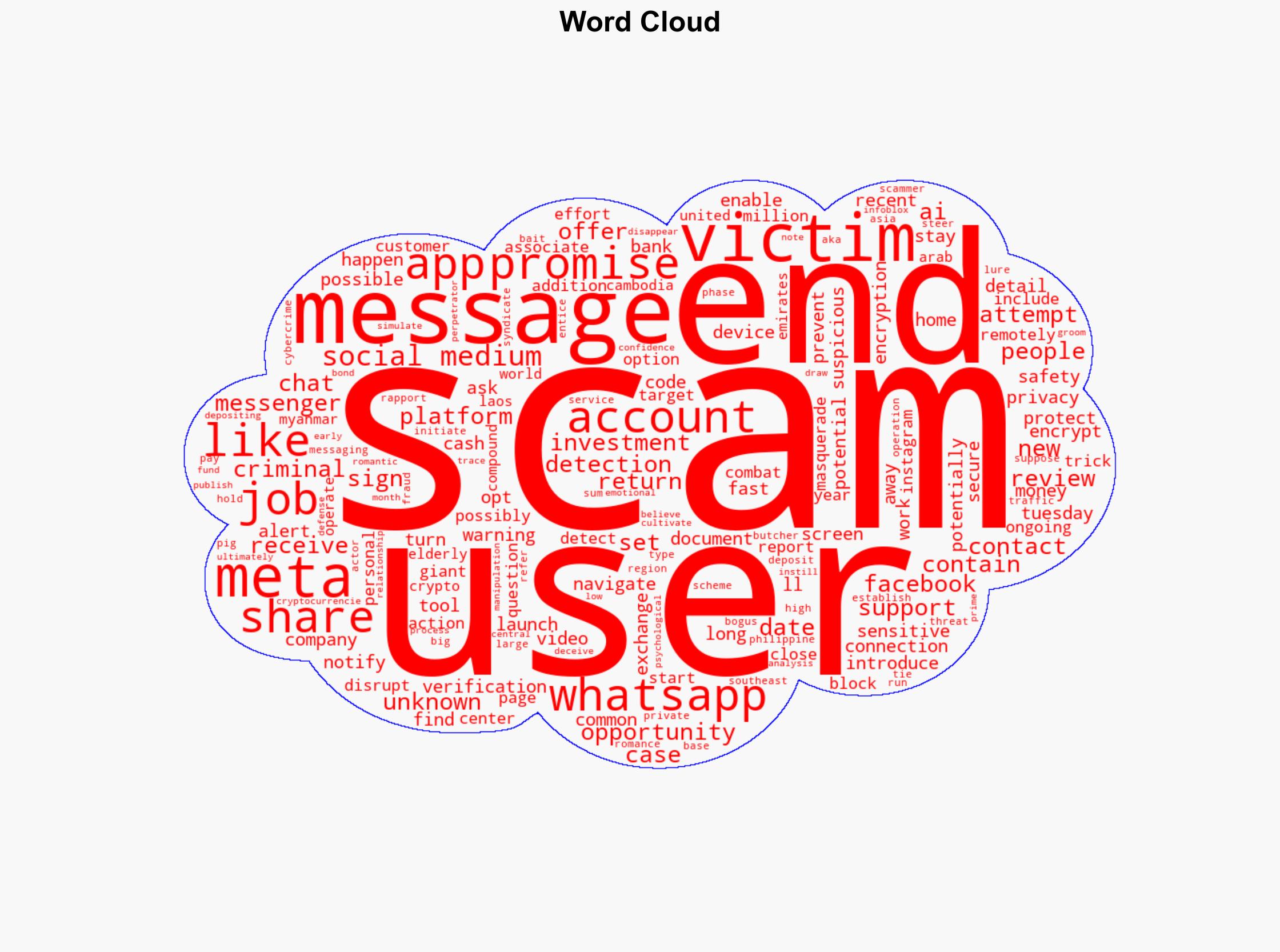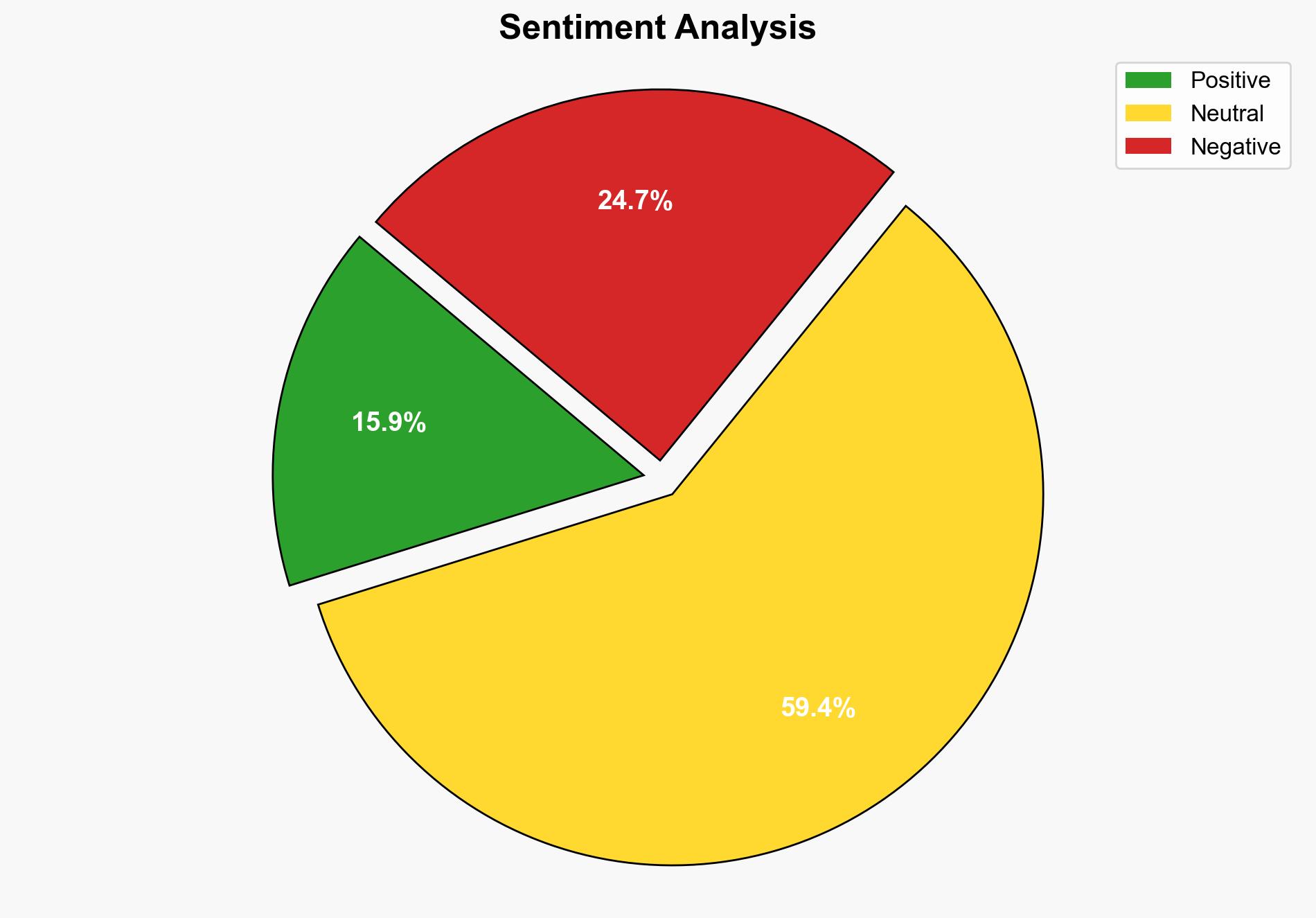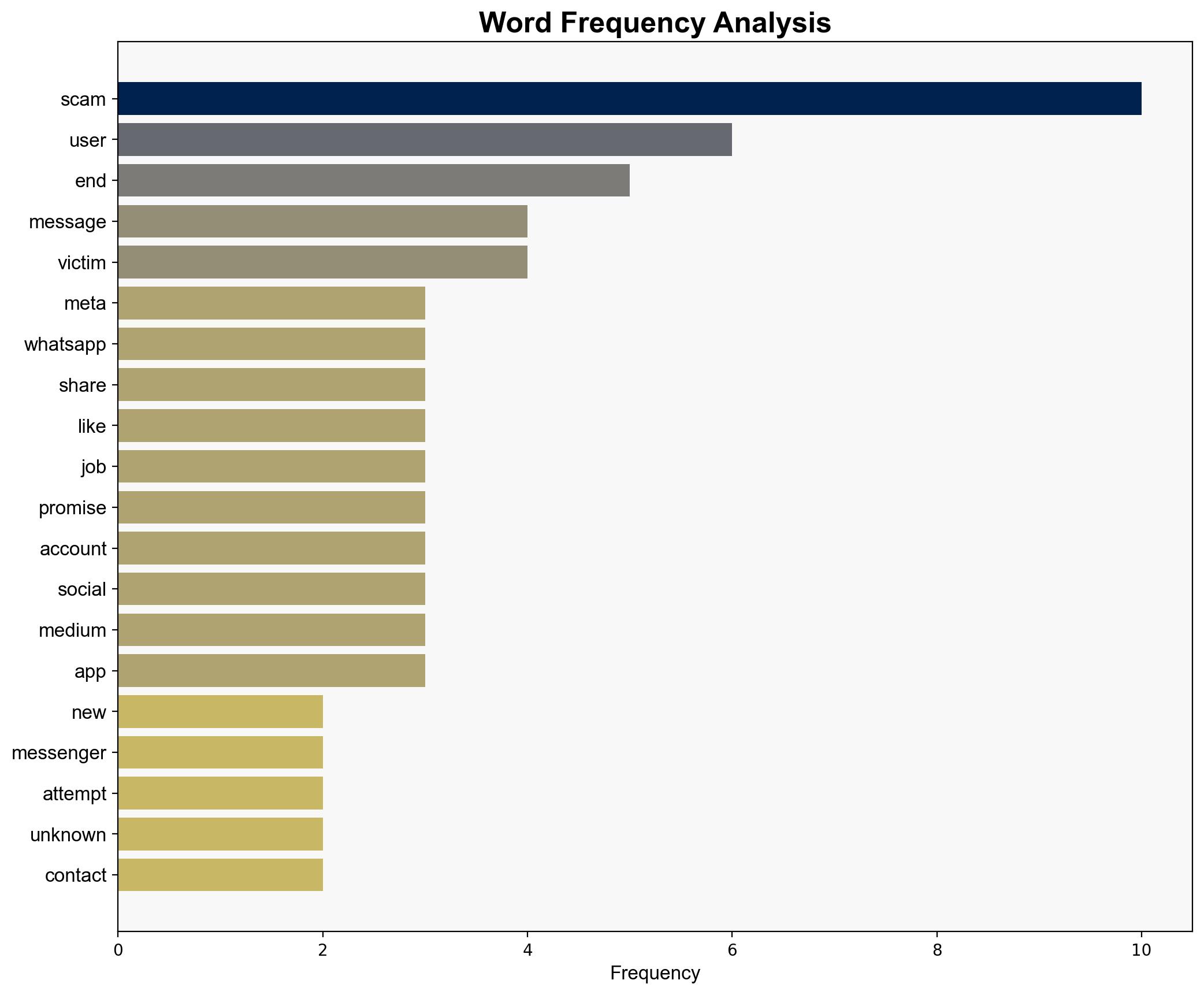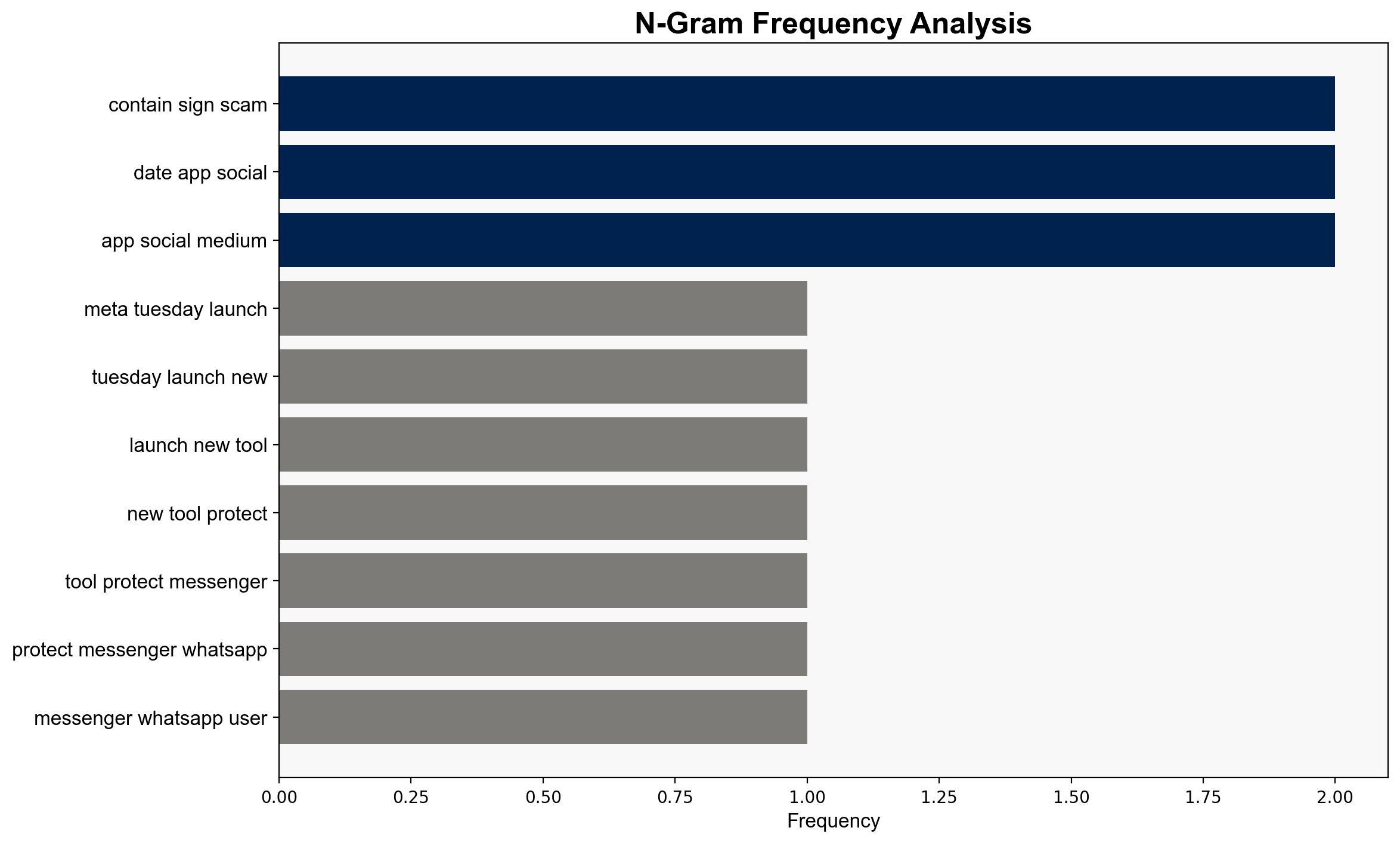Meta Rolls Out New Tools to Protect WhatsApp and Messenger Users from Scams – Internet
Published on: 2025-10-21
Intelligence Report: Meta Rolls Out New Tools to Protect WhatsApp and Messenger Users from Scams – Internet
1. BLUF (Bottom Line Up Front)
Meta’s introduction of new tools to protect WhatsApp and Messenger users from scams is a strategic move to enhance user security and trust. The most supported hypothesis is that these tools are primarily designed to mitigate the growing threat of scams facilitated through social media platforms. Confidence in this assessment is moderate, given the complexity of cyber threats and the evolving tactics of cybercriminals. Recommended actions include continuous monitoring of tool effectiveness and collaboration with international cybercrime units to address cross-border scam operations.
2. Competing Hypotheses
1. **Hypothesis A**: Meta’s new tools are a genuine effort to protect users from scams, driven by increasing regulatory pressure and user demand for enhanced security.
2. **Hypothesis B**: The rollout of these tools is primarily a public relations strategy to improve Meta’s image amidst ongoing criticism regarding user privacy and security lapses.
Using ACH 2.0, Hypothesis A is better supported due to the detailed description of the tools’ functionalities and the context of global scam operations targeting users. Hypothesis B, while plausible, lacks direct evidence in the source text suggesting a purely PR-driven motive.
3. Key Assumptions and Red Flags
– **Assumptions**: It is assumed that the tools will be effective in detecting and preventing scams. Another assumption is that Meta’s actions are primarily user-focused rather than image-driven.
– **Red Flags**: The effectiveness of AI in identifying scams without infringing on privacy is a potential concern. The lack of specific metrics for tool success could indicate uncertainty about their impact.
– **Blind Spots**: The source does not address potential user backlash if the tools fail to protect against sophisticated scams or if they inadvertently flag legitimate interactions.
4. Implications and Strategic Risks
The introduction of these tools could set a precedent for other tech companies to enhance security measures. However, there is a risk of escalating cybercriminal tactics, leading to more sophisticated scams. Economically, successful scam prevention could save users significant financial losses, but failure could erode trust in Meta’s platforms. Geopolitically, cooperation with international cybercrime units could strengthen global cybersecurity efforts.
5. Recommendations and Outlook
- **Mitigation**: Meta should continuously update its tools based on emerging scam tactics and user feedback.
- **Collaboration**: Establish partnerships with global cybersecurity organizations to share intelligence and best practices.
- **Scenario Projections**:
– **Best Case**: Tools effectively reduce scams, enhancing user trust and platform security.
– **Worst Case**: Tools fail to prevent scams, leading to increased user dissatisfaction and regulatory scrutiny.
– **Most Likely**: Tools provide moderate success, requiring ongoing adjustments and improvements.
6. Key Individuals and Entities
No specific individuals are mentioned in the source. Key entities include Meta, WhatsApp, Messenger, and international cybercrime units.
7. Thematic Tags
national security threats, cybersecurity, counter-terrorism, regional focus




